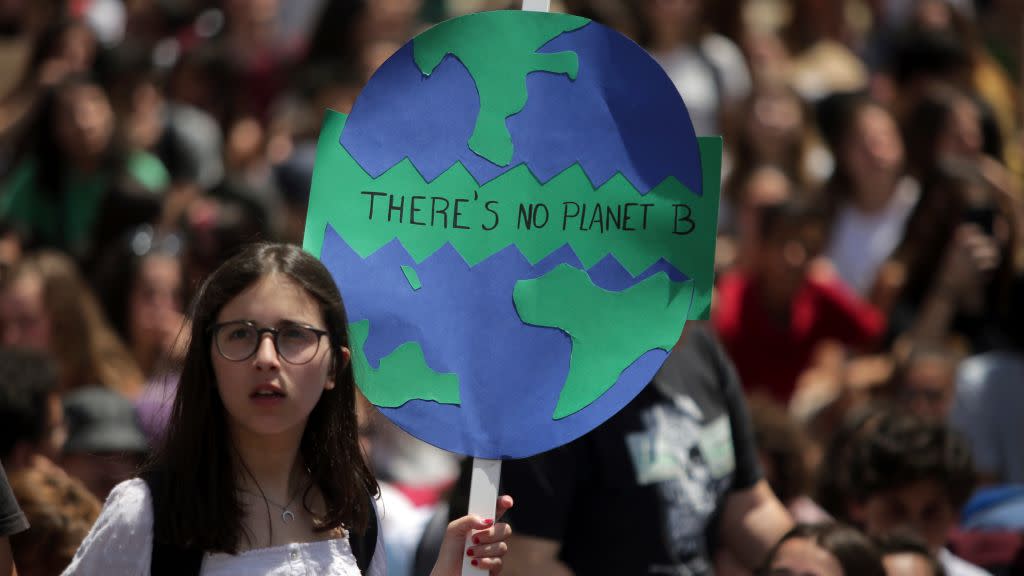The huge youth climate strike is about courage, not hope

The breadth and scope of the climate crisis is seen as its greatest challenge. When people in different regions of the world—sometimes within the same country—are punished by weather events of varying intensity, it is painful to argue for a consensus on big solutions. What we see in the moment demands immediate attention, distracting us from the root cause.
The culprit of our present predicament is the amount of greenhouse gases we continue to dump into the atmosphere. But it’s hard to point the finger at invisible gases. And, anyway, it takes time to clear away the clouds of scientific uncertainty that hide the cause-and-effect connection between greenhouse gases and specific disasters. That is why what’s happening on the streets tomorrow is so important.
As children and young people in more than 150 countries skip school, university, or work, to strike against climate inaction, they aren’t just creating a new form of activism. They are also creating a platform that presents a united front to a multi-pronged global problem.
“The struggle for action will no doubt be difficult and hard-fought… But I would like to believe that out of this struggle will be born a generation that will be able to look upon the world with clearer eyes than those that preceded it; that they will be able to transcend the isolation in which humanity was entrapped in the time of its derangement; that they will rediscover their kinship with other beings; and that this vision, at once new and ancient, will find expression in a transformed and renewed art and literature.”
That’s the last paragraph of The Great Derangement, a thought-provoking reflection on climate change by the acclaimed Indian novelist Amitav Ghosh. When the book came out in 2016, little did he know that the generation he hoped would exist one day had already been born. The pace at which the climate strike movement has gathered momentum, starting with a lone teenager sitting outside the Swedish parliament, to now millions around the world, has taken the world by surprise.
Greta Thunberg, that solitary teenager, sailed across the Atlantic to be present tomorrow at the epicenter of the global climate strike in New York City. Thunberg would be the first to admit that she is not the only reason for the success of the movement. What has built up so quickly could also just as easily break apart, especially if it depended on a singular hero. Protest of this magnitude and with great demands of urgency must not fall prey to a singular narrative.
Tomorrow, then, should also be about celebrating and elevating others, including Isra Hirsi of the US, Theresa Rose Sebastian of Ireland, Mohammed Ali of Iraq, Qiniso Ngcobo of South Africa, Brishti Chanda of India, Anna Taylor of the UK, Howey Ou of China, Manjot Kaur of Australia, Emma-Jane Burian of Canada, and countless others who are fighting the good fight without the attention.
The bigness of the climate crisis isn’t just a challenge, it’s an opportunity. These teenagers have helped the world to see the flip side. Through their activism and storytelling, they are making climate change real and tangible to the communities to which they belong. They realize that climate change is a threat-multiplier, even though it isn’t the only problem the world is dealing with. The movement to scale the solutions to cut emissions will also help with almost every other problem the world is facing, or will soon face.
What’s happening on the streets tomorrow isn’t so much about making the world a more hopeful place; it’s really about inspiring others to be courageous enough to act.
This story is part of Covering Climate Now, a global collaboration of more than 250 news outlets to strengthen coverage of the climate story.
Sign up for the Quartz Daily Brief, our free daily newsletter with the world’s most important and interesting news.
More stories from Quartz:

